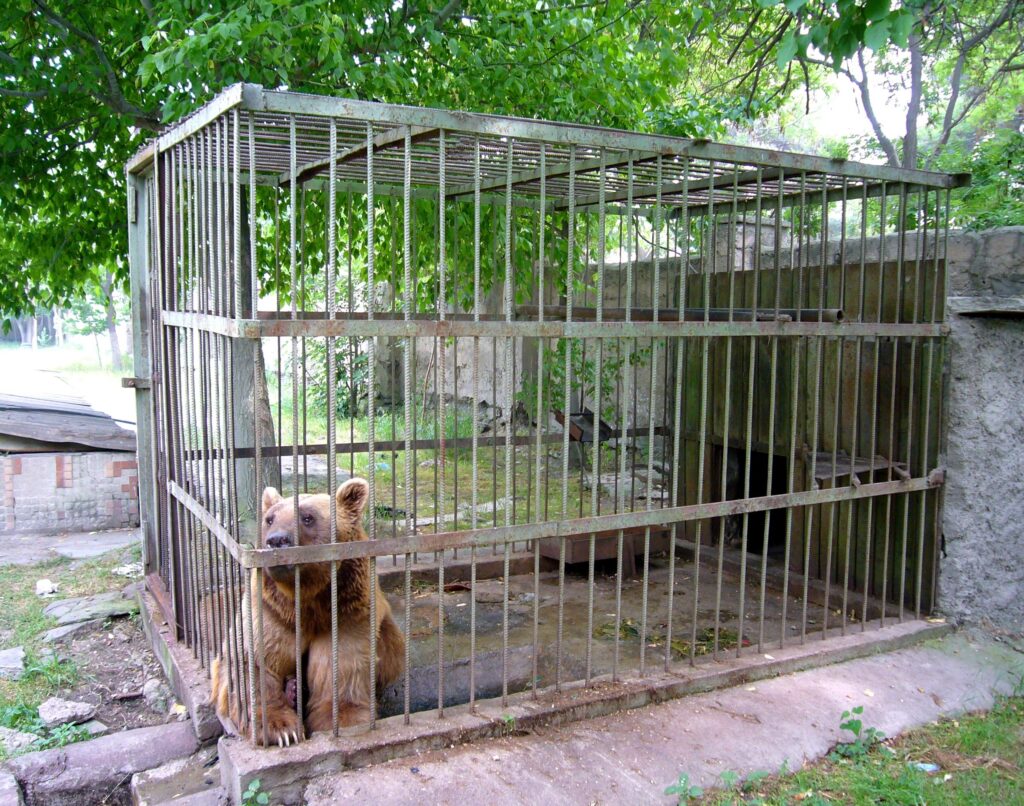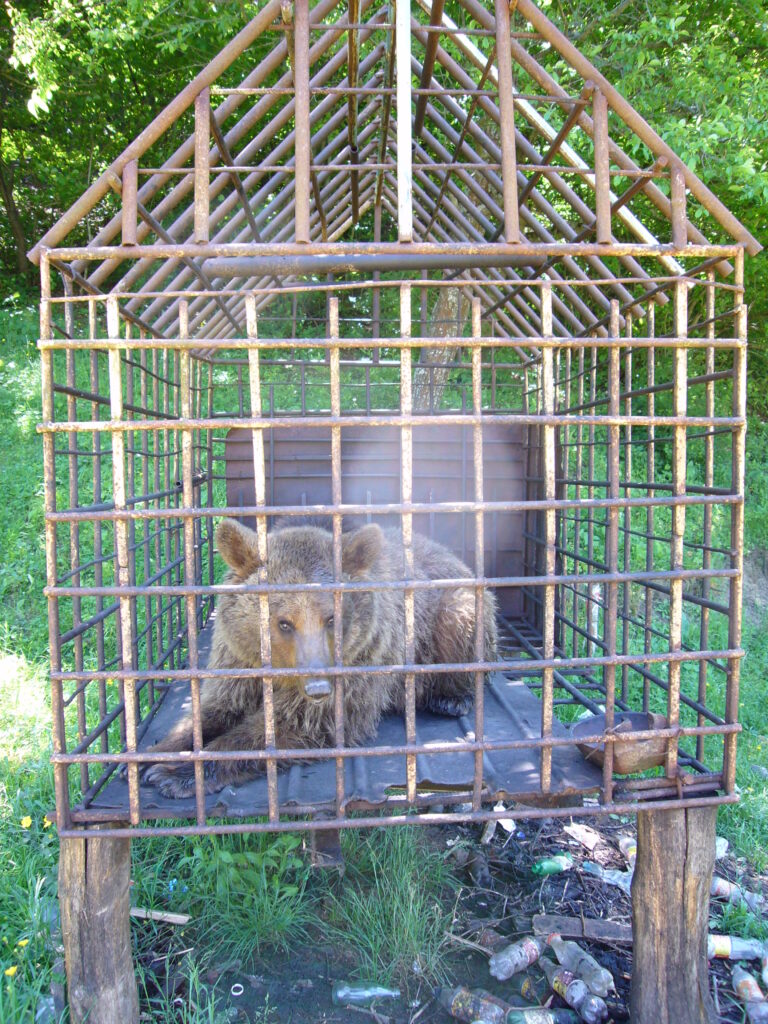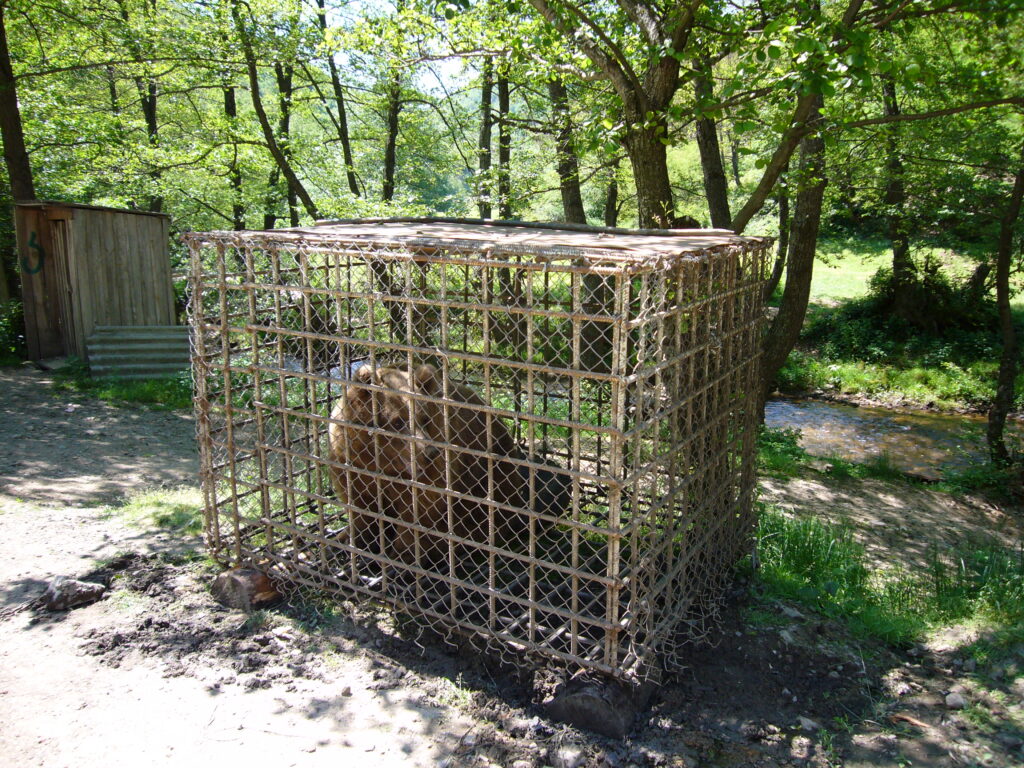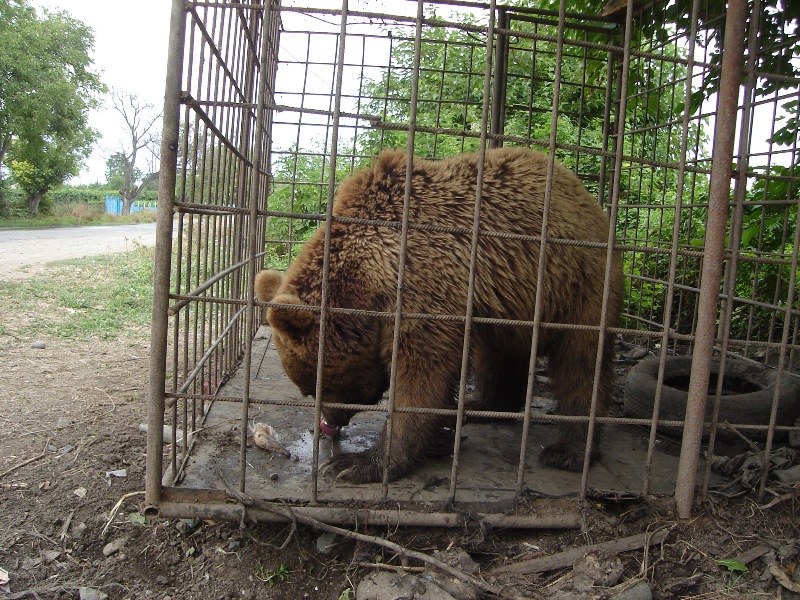The problem of keeping bears in captivity has a two decades-long history in Georgia. The animals are kept predominantly for local and international tourists’ attraction in restaurants, petrol stations, monasteries, along and nearby the central highway that crosses the country horizontally (Batumi-Dedoplistskaro, approx. 800 km). The issue is linked to two major problems: contribution to wild population decline and inhumane treatment of animals. Many organizations (including Bears in Mind, SEED, NACRES, Tbilisi Zoo, some voluntary shelters, government of Georgia etc.) have been dealing with this problem since the collapse of Soviet Union. Remarkable success was achieved through the implementation of different concrete projects; however, the problem still exists (although not to the devastating degrees as it was observed in the 90s) and bears (predominantly cubs) still occur in captivity every spring. Most of them are still kept under deplorable conditions. In parallel, concerned organizations, at this moment, do not have credible monitoring data and it is not exactly known how many bears there are in (illegal) captivity throughout Georgia. Moreover, effective legislation of Georgia prescribes fines to an owner, confiscation of a bear and moving it to a shelter. Nevertheless, the limited capacity of shelters (including the national zoo) in conjunction to the low awareness of the population leads the government (also the judicial system) to be inactive and “close its eyes” to the problem.
Most of the bears in captivity have been registered in a central database. Several surveys on bears in captivity have been initiated over the years, where information about the bears and their owners was collected, following a specially prepared questionnaire. The bears’ owners received advice on improvement of food, living conditions, health and general care for bears. NACRES staff also checked whether the owner had a permit to keep the bear. This was very often not the case. Curiously, the owners did not use the bears to gain money from them. It is thought that the caged bears are kept as a status symbol. In 2007 three poorly kept bears that lived in a closed-down zoo near Tbilisi were taken to the Bear Forest in the Netherlands. This rescue operation generated a lot of nationwide media attention towards the problem, which put the captive bear issue back on the agenda. With the survey data, the next step was to implement the Captive Bear Action Plan. Furthermore, the development of a shelter for confiscated or rescued bears should be developed. Unfortunately, many of our joint efforts have thus far shown little success. Mostly because of the priorities within the government.
Since 2019, Bears in Mind cooperates with SEED in an awareness initiative, hoping to find lasting solutions for the problems related to captive bears in Georgia.





